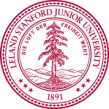Join Our Team
Postdoctoral Research in Neuroengineering/Brain Computer Interfaces
– Brown University, MGH
As part of our ongoing clinical trials of an intracortical neural interface system (BrainGate), we seek an enthusiastic individual with substantial experience in computer science, software for computer interaction, neuroengineering / neural interface communication, current approaches in machine / deep learning, and/or high-resolution neurophysiology to join our internationally recognized research team. Our lab and consortium focus on developing brain-computer interfaces that will restore communication and upper limb function for people with severe speech and motor impairments, including people with spinal cord injury, stroke, or ALS. Throughout our clinical research, we also conduct fundamental human neuroscience research in movement control, cognition, and attention.
We are currently seeking a postdoctoral scholar to focus on
• Creating and deploying an advanced neural communication interface system to provide people with severe speech and motor disorders with a 24/7 system that restores intuitive communication and control over a tablet computer;
• Full-stack programming (including backend and User Interface) to integrate streaming neural and command signals as well as system configuration management across multiple devices and operating systems (e.g., Linux, Windows, and iOS).
• Improving the long-term stability and accuracy of neural decoding across contexts through innovative real-time signal processing, dimensionality reduction techniques, and advanced decoding strategies.
• Integrating multiple types of neural decoders for control of various devices through imagined movements, gestures, or attempted speech.
• Analyzing neuronal ensemble activity, including how kinematics and dynamics of intended movement are encoded in cortical local field potentials, multi-unit activity, and single units toward the robust decoding of intended movement.
Candidates must have strong computational and neuroscientific skills, including proficiency in Python, streaming or real-time data processing, software version control, as well as demonstrated skills in peer-reviewed manuscript preparation. Preferred educational background is a PhD in CS, BME/neural engineering, EE, applied mathematics, or other closely related fields. Experience in app development for iOS, MacOS, and Windows is expected, as well as prior experience with single or multi-unit recordings, neuronal ensemble analysis, C/C++, dimensionality reduction and machine learning techniques, signal processing, and/or statistical analysis.
Inquiries should be directed to the laboratory of Leigh R. Hochberg, MD, PhD, c/o Beth Travers ([email protected]).
T32 Postdoctoral Training Program
Jonathan Rosand, MD, MSc and Leigh Hochberg, MD, PhD are now accepting applications for the NIH-funded T32 Postdoctoral Training Program in Recovery and Restoration of CNS Health and Function. The program is open to post-doctoral (MD or MD/PhD) clinician-scientists and post-doctoral (PhD) neuroengineers/computational neuroscientists to train under a multidisciplinary training faculty from anesthesia, biomedical engineering, computational neuroscience, neurology, neurosurgery, physical medicine and rehabilitation, psychiatry, and radiology.
The research and training opportunity includes a two year, T32-funded fellowship that usually begins in July.
Clinical Neurotechnology Research Assistant
The Clinical Neurotechnology Research Assistant (CNRA) is primarily responsible for the performance of clinical neurotechnology research in the homes of clinical trial participants with tetraplegia. These responsibilities include the careful execution and documentation of research sessions studying the safety and efficacy of investigational medical devices and novel, neurally-controlled assistive interfaces (“brain-computer interfaces”) for people with paralysis or communication impairments. Positions are currently open at Massachusetts General Hospital. Click the link below for further information and to submit applications:
CNRA at Massachusetts General Hospital
Please refer any questions regarding the program or eligibility to Drs. Jonathan Rosand and Leigh Hochberg.








